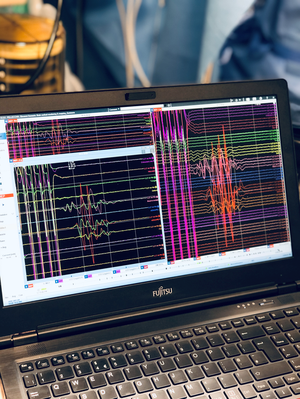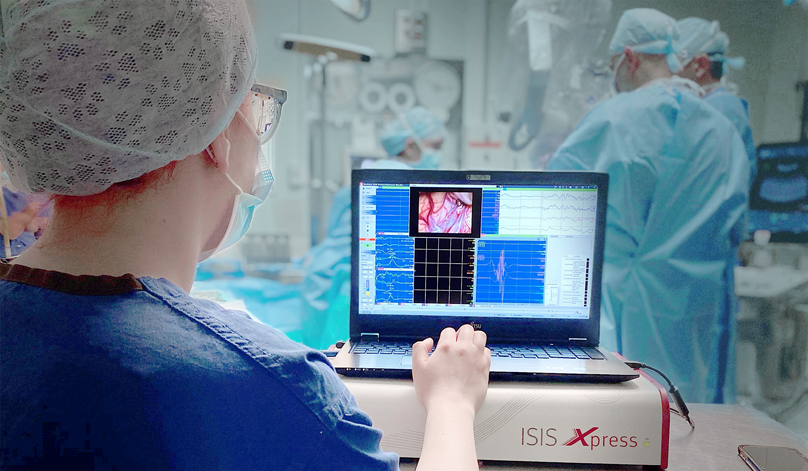Neurophysiology focuses on the nervous system's function, (i.e. the brain, spinal cord and all nerves). With neurophysiological monitoring, the functions of the nervous system are monitored to detect and, if possible, prevent damage.

Signals are exchanged in the nervous system via electricity and messenger substances, so-called neurotransmitters. In neurophysiological monitoring, electricity and sensory stimuli (e.g., sounds, light) are used to stimulate the nerve (cells) and thus check whether everything is working.
In the past, the signals produced could only be viewed or listened to as muscle twitches. Today, thanks to advanced technology, it is possible to view, save and evaluate the signals digitally on a computer.
Neurophysiological monitoring is used to determine the cause of symptoms (e.g. measurement of nerve conduction velocity in carpal tunnel syndrome) or to have a basis for orientation before starting surgery (e.g. hearing function in operations on the auditory nerve).
During surgery, intraoperative neurophysiological monitoring can be used to monitor nerve functions and identify tissue at risk.
Neurophysiological monitoring can also be useful after surgery, e.g. to assess how well patients are recovering from a serious accident.
Neurophysiological monitoring is performed and evaluated by specially trained personnel. They can be medical technicians, neurophysiologists, doctors, and other people with a medical or technical background.
Further information about neurophysiological monitoring can be found at the national and international neurophysiological societies, science databases and, of course, our courses and trainings. >>
